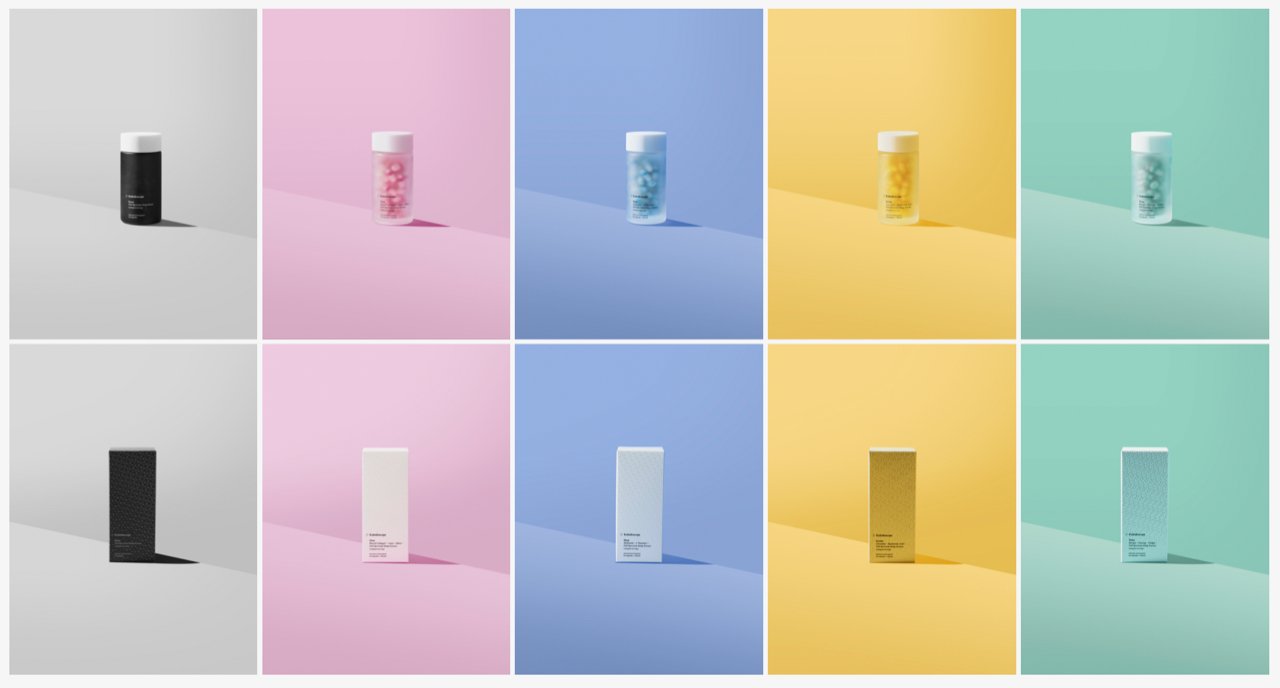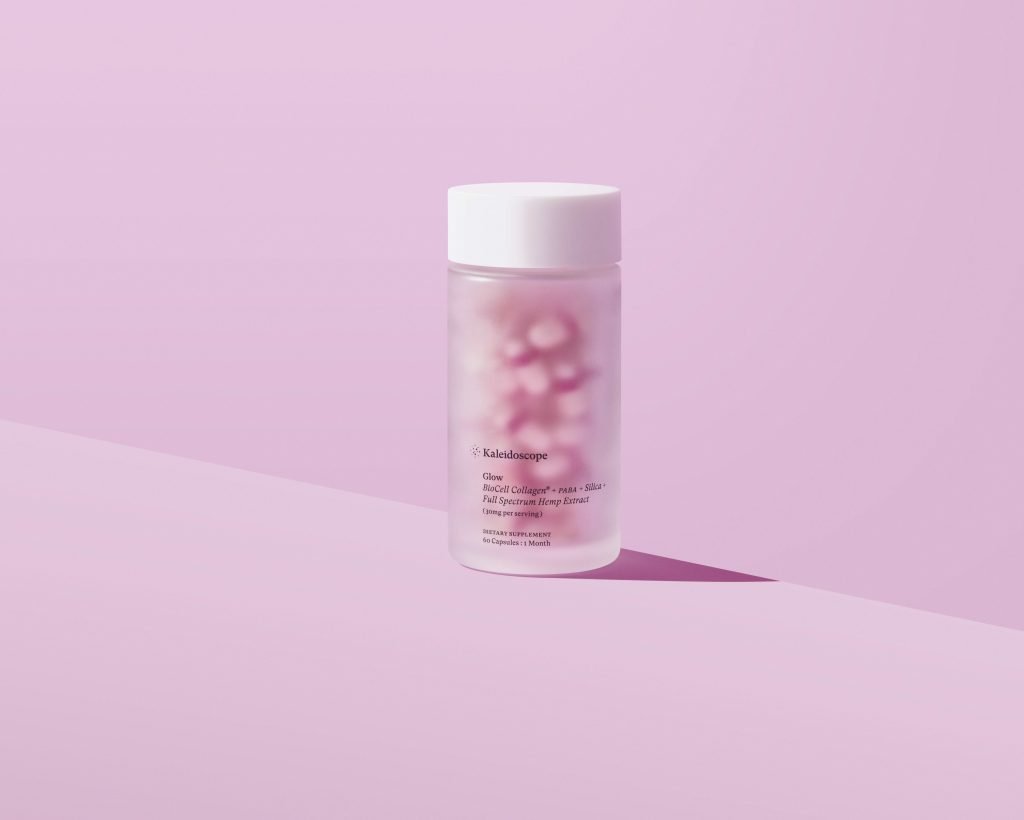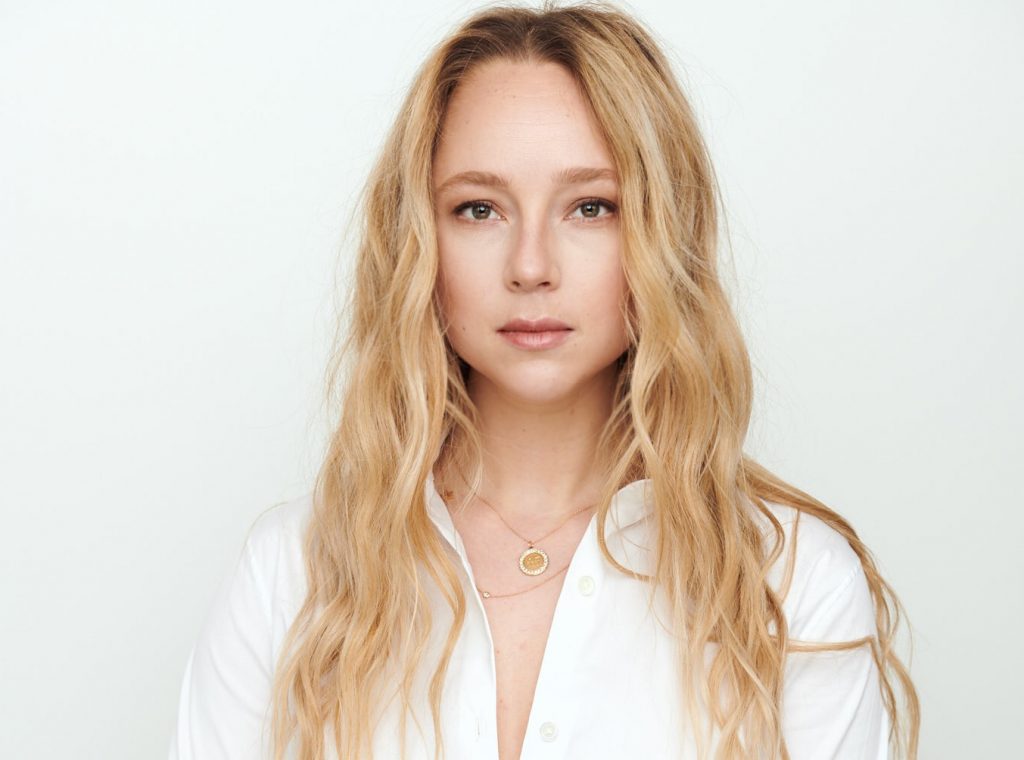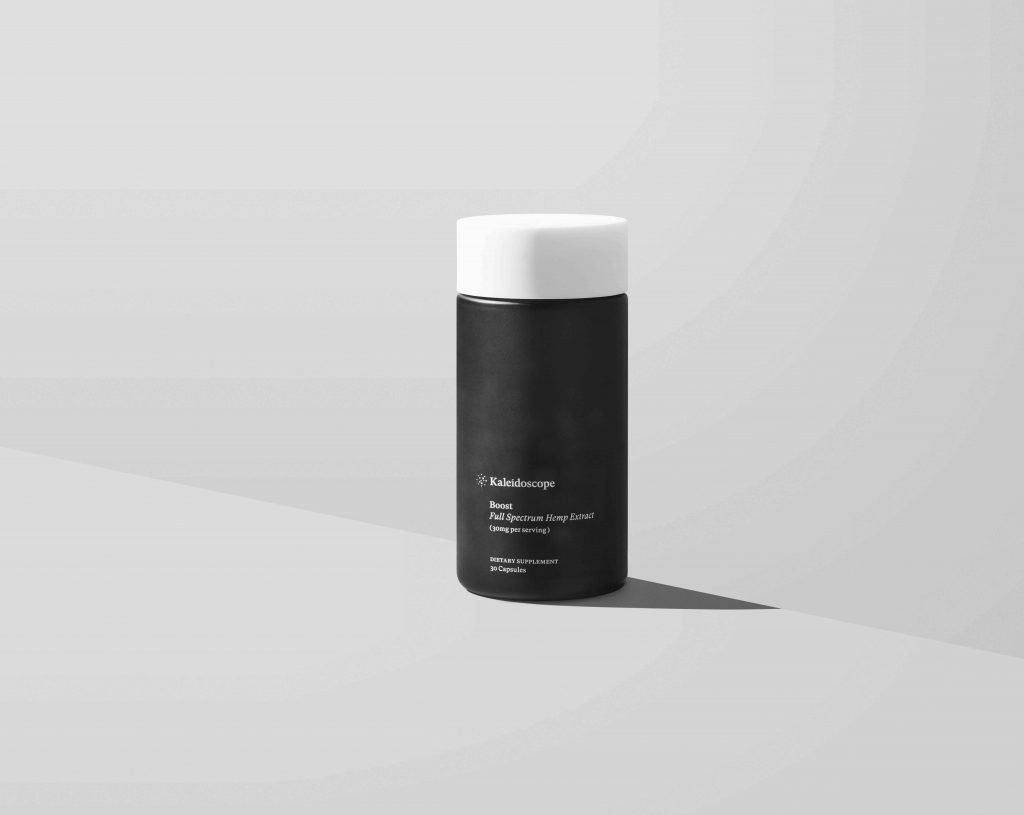
“For The Type A Person”: Ana Rosenstein Created CBD Vitamin Brand Kaleidoscope To Work As Hard As She Does
New CBD vitamin brand Kaleidoscope is out to put the stoner stereotype of cannabis users to rest once and for all.
“CBD is not some weird hippie dippy product. It’s for the Type A person who needs to be more productive and doesn’t want to fall in asleep in the morning or wants to make sure they’ve gotten enough sleep at night,” says founder Ana Rosenstein. “The customer that’s been forgotten are Type A career-driven people, the people who want to be more productive versions of themselves.”
For go-getters, Kaleidoscope’s supplements are designed to be taken twice daily to maximize the proficiency of cannabidiol or CBD, the non-psychoactive constituent of the cannabis plant that Rosenstein explains delivers the most benefits when it builds up in someone’s system. The brand’s debut supplements are snooze aid Sleep, beautifier Glow, joint protector Soothe and energy booster Wake. Each marries 30 milligrams of full-spectrum CBD with additional key ingredients. For example, Sleep pairs CBD with L-theanine and melatonin.
Suiting its ambitious audience, Kaleidoscope’s origin story is decidedly Type A. Rosenstein came up with the idea for it during the summer before her second year of Harvard Business School’s MBA program while working at venture capital firm RRE Ventures, where she was tasked with honing a consumer products investment strategy. As she was honing that strategy, Rosenstein explored the CBD category extensively.

“I believed the winner in the space hadn’t been built,” says Rosenstein. “I saw a really interesting opportunity. My observation was that the vast majority of players in the CBD space were developing recreational products rather than functional products, and CBD is fundamentally a functional ingredient.” In other words, she sensed a twist on the likes of Care/of or Seed straddling the wellness, health, CBD and supplement sectors with elements of customization (Kaleidoscope features a quick digital quiz for product guidance) and eye-catching design could gain traction.
Rosenstein took her idea for a functional CBD brand to RRE general partner Stuart Ellman. Ellman was bullish on the concept and told her to pursue it. She didn’t intend to launch the brand herself—she planned to stick to investing—but her determined side kicked in, and she decided to give entrepreneurialism a go to bring the concept to life. To get it off the ground, RRE and Rosenstein’s father, JANA Partners founder Barry Rosenstein, together invested $4 million in Kaleidoscope. Rosenstein estimates the funding gives the brand a two-year runway. It’s expected to close in on $1 million in sales within its initial year on the market.
“CBD is not some weird hippie dippy product. It’s for the Type A person who needs to be more productive.”
Kaleidoscope is starting with a subscription-driven direct-to-consumer distribution approach. Its vitamins are priced at $75 for a monthly supply on replenishment, although they can be purchased on a one-time basis for $90 as well. “A bottle of a CBD sublingual tincture is roughly $150, and that’s supposed to last you a month. If you get two of our products on subscription, then it’s $150 a month for double what you would get in a dropper bottle,” says Rosenstein. “These are the prices that made sense to us from a competitive landscape and margin standpoint and, if I can make them better over time, I will absolutely do so.”
She asserts Kaleidoscope’s value proposition warrants its price structure. It sources hemp-derived CBD from agricultural hemp producer GenCanna, which touts its hemp as being premium quality and pure. Kaleidoscope’s hemp is processed in a food-grade GMP-compliant facility, and its CBD is verified by third-party entities. Common in supplements, Rosenstein pronounces the brand’s application of microencapsulation to improve the absorption of ingredients a first for CBD products.

“CBD has low bioavailability. That means that, of the CBD you ingest, a low percentage gets into your bloodstream. Our digestive system does a really good job of doing what it’s supposed to do,” she says. “I knew I wanted something that people could take every day that was flavorless and effective. I wanted to create a CBD-based capsule. In order to do that, I had to increase the bioavailability.” Rosenstein notes CBD tinctures have high bioavailability, but she prefers capsules to them and argues they’re better for encouraging a regular routine. She says, “I don’t want to drink oil every single day. I just find it gross, and it doesn’t taste good.”
Rosenstein was adamant that Kaleidescope meet the elevated design bars set by supplement disruptors modernizing vitamins for the digital age. She tapped consultancy FÖDA to spearhead its packaging design. Kaleidoscope’s packaging color palette is largely black and white, and its glass bottles are frosted with the exception of the bottoms. Consumers can peer through the clear bottoms for a kaleidoscope-esque glimpse at the capsules inside the bottles. The capsules are white with bright bands around them crafted from natural dyes that imbue them with a purposefly messy tie-dye quality.
“We view our bodies as having distinct patterns, and our products are able to be stacked, mixed and combined to fit your body pattern.”
The secondary boxes have mathematically-coded geometric patterns. The codes connect the design to the deeper brand notion that Kaleidoscope is compatible with people’s unique biochemical patterns. Rosenstein explains, “We view our bodies as having distinct patterns, and our products are able to be stacked, mixed and combined to fit your body pattern.” Elaborating on the brand’s name, she says, “Kaleidoscope sounds trippy, but, when you think of the word, it’s a child toy, and it’s very fundamental. The history of kaleidoscopes is rooted in math. The word also gives us room to expand into THC when we want to explore colors and shapes more.” A THC line is a possibility in the future as are further CBD capsule offerings.
In a noisy and CBD-unfriendly social media marketing environment, Kaleidoscope has embarked on an offline initiative to raise awareness. It hired media buying company Harmelin Media to secure aerial banner, taxi and subway advertising spots in New York. “To our knowledge, it is the largest cannabis media spend to date in New York,” says Rosenstein. “The advice that they gave us was, ‘You really can’t attempt to cover a city with much less than $500,000,’ and we took that into consideration to figure out what to spend.” She admits customer acquisition is a challenge in the crowded DTC segment and anticipates eventually selling Kaleidoscope in traditional retail stores. Prestige specialty retailers like Space NK are retail targets.

As Rosenstein establishes Kaleidoscope’s operations, she’s not forgetting the human component of CBD. The brand will donate around 1% of its proceeds to cannabis industry causes such as research on CBD to combat epilepsy and sustainable hemp farming practices. Rosenstein underscores the powerful effects she’s seen CBD have on her health, and the health of her friends and family members.
“I was a ballerina my whole life, and I’m an extreme skier. I destroyed my body. I live in horrible pain. I’m not supposed to ski, but I do. CBD has been one of the few things that really provides me relief. I have seen other people in my life derive relief from it. My dad has a pinched nerve in his elbow, and he takes our product and uses a topical simultaneously,” she says. “All around me, there are people who derive a lot of benefit from it, and that’s really important when looking at the CBD landscape. Yes, it’s an opportunity to grow a business, but it’s also a real opportunity to help people.”





Leave a Reply
You must be logged in to post a comment.